So What is THCA actually? Tetrahydrocannabinolic acid, commonly known as THCA, is a cannabinoid acid found in the fresh cannabis plant. THCA is non-psychoactive until it converts to thc through non-enzymatic processes, allowing for a subtle and controlled cannabis experience. While it shares a similar molecular structure with THC, the compound known for causing the high associated with marijuana, THCA does not produce these intoxicating effects. It’s an acid precursor to THC, which means that through a process called decarboxylation, THCA converts to THC when exposed to heat, such as when cannabis is smoked or vaporized.
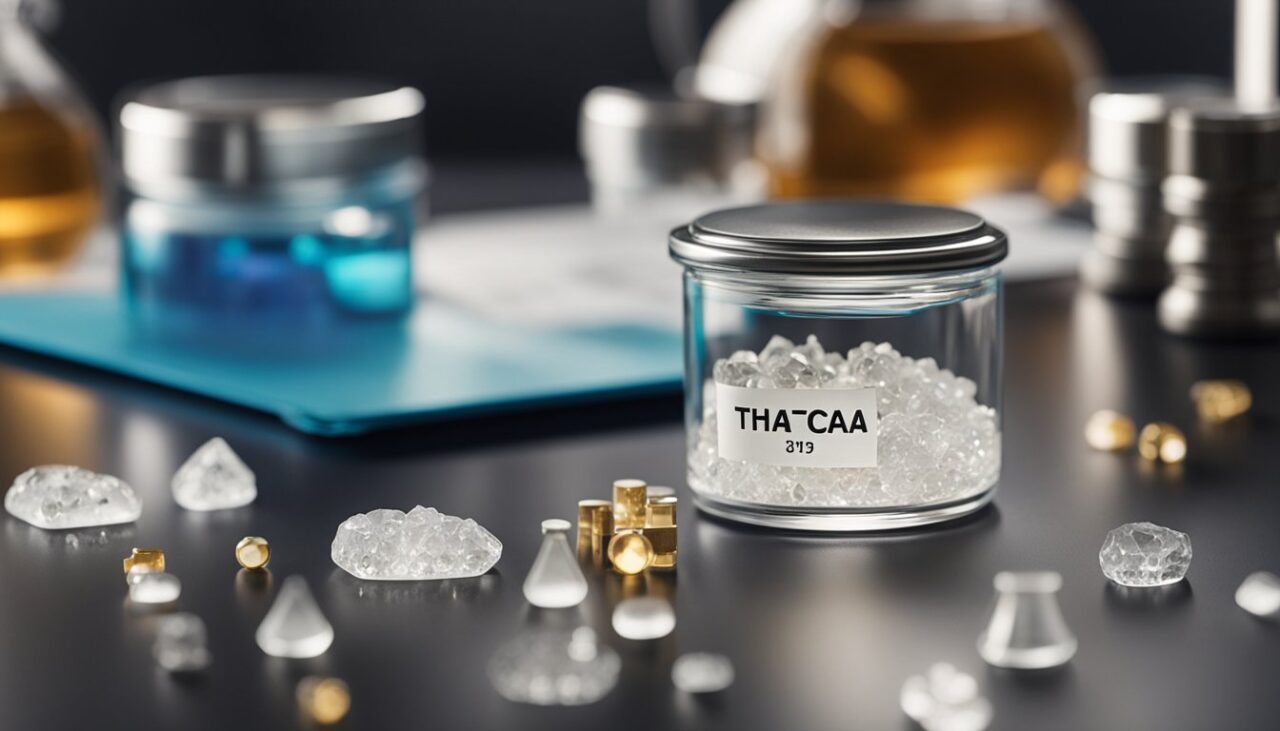
Understanding THCA flower is crucial for both consumers and medical patients as it has its own range of potential benefits separate from THC. Research has begun to uncover how legal THCA may influence health, revealing its role in reducing inflammation and potentially even managing certain medical conditions. However, despite the promising studies, the scientific community is still unraveling the complexities of how THCA extracts and other cannabinoids interact with the human body. It's also vital to be aware of the various ways to consume raw THCA, including juicing raw cannabis and using products specifically designed to preserve the cannabinoid before it converts to THC.
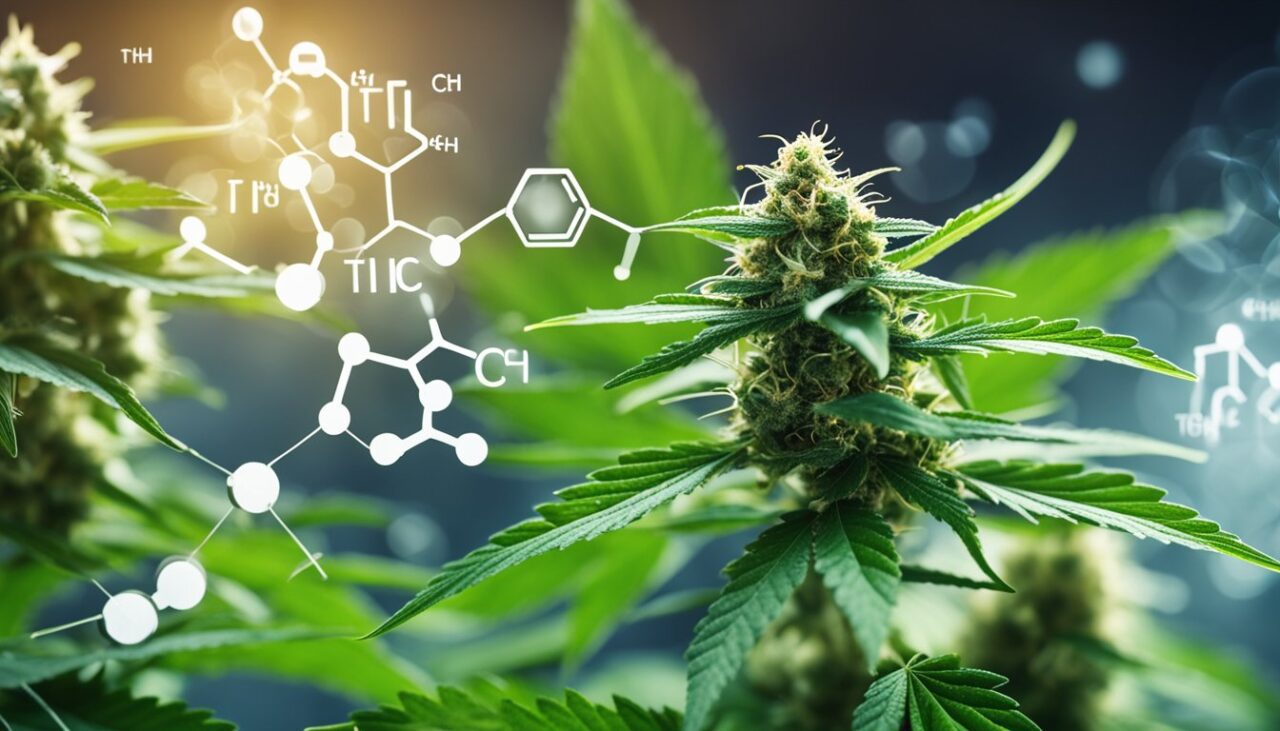
When exploring the world of cannabis, you'll often encounter terms like THC and THCA. These compounds are closely related, but they have important differences that affect how they interact with your body.
THCA, or tetrahydrocannabinolic acid, is the non-psychoactive precursor to THC found in the raw cannabis plant. Its chemical structure includes a carboxylic acid group, which is crucial because it determines how THCA behaves and how it will ultimately convert into THC. As a cannabinoid, THCA content contributes to the plant's total cannabinoid content, representing a significant part of its chemical profile.
The process of converting THCA into THC is known as decarboxylation. This chemical reaction involves the removal of a carboxyl group from THCA and releasing carbon dioxide (CO2). This occurs naturally when the cannabis plant is dried and cured, but the process can be accelerated by applying heat.
Heat plays a pivotal role in the transition from THCA to THC. Without heat, the cannabis flower contains mostly non-intoxicating THCA. Once you apply heat, whether it's from a lighter or an oven, this activates the transformation. The optimal temperature for this process is a specific point of interest in cannabis chemistry, as it ensures maximum conversion without degrading the valuable THC.
Remember, while THCA itself doesn't produce psychoactive effects, its presence is crucial for the production of THC, which is responsible for the "high" associated with cannabis use.
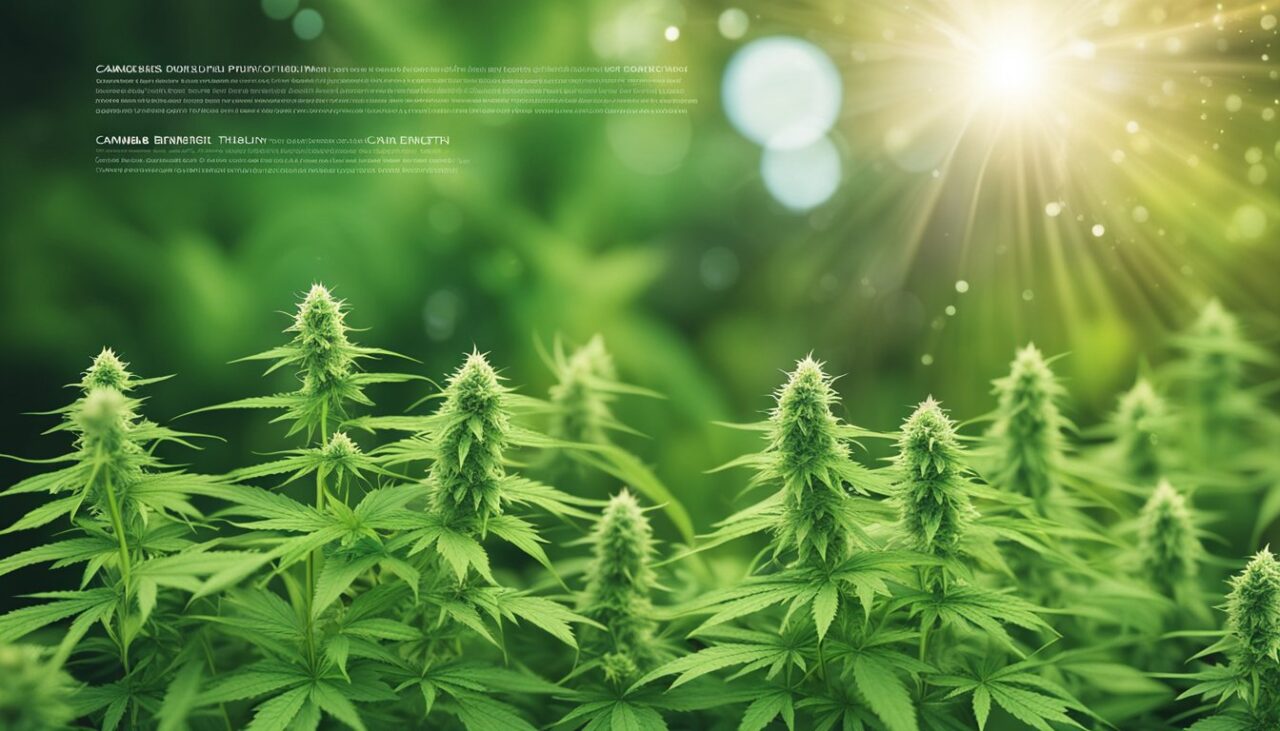
Exploring the potential health benefits of THCA, you'll find that this cannabinoid might offer neuroprotective, anti-inflammatory, and pain-relieving properties. These effects could contribute to its therapeutic benefits, although research is ongoing.
THCA has shown promise in protecting brain cells from damage. Scientific studies suggest that THCA may help preserve the neural pathways, and it's thought to have the potential to support the treatment of neurodegenerative diseases. This cannabinoid's neuroprotective properties could play a role in helping your brain stay healthy over time.
The anti-inflammatory qualities of THCA are particularly noteworthy. It could help reduce swelling and inflammation in the body, which may provide relief from various conditions that involve inflammation. If you're looking for a natural approach to manage inflammation, THCA may be worth considering as part of your regimen.
For those struggling with chronic pain, THCA may offer a glimmer of hope. Its properties have been associated with pain relief, potentially making it a therapeutic ally without the psychoactive effects that THC is known for. By tapping into the way cannabinoids interact with your body, THCA might help ease your discomfort and improve your quality of life.
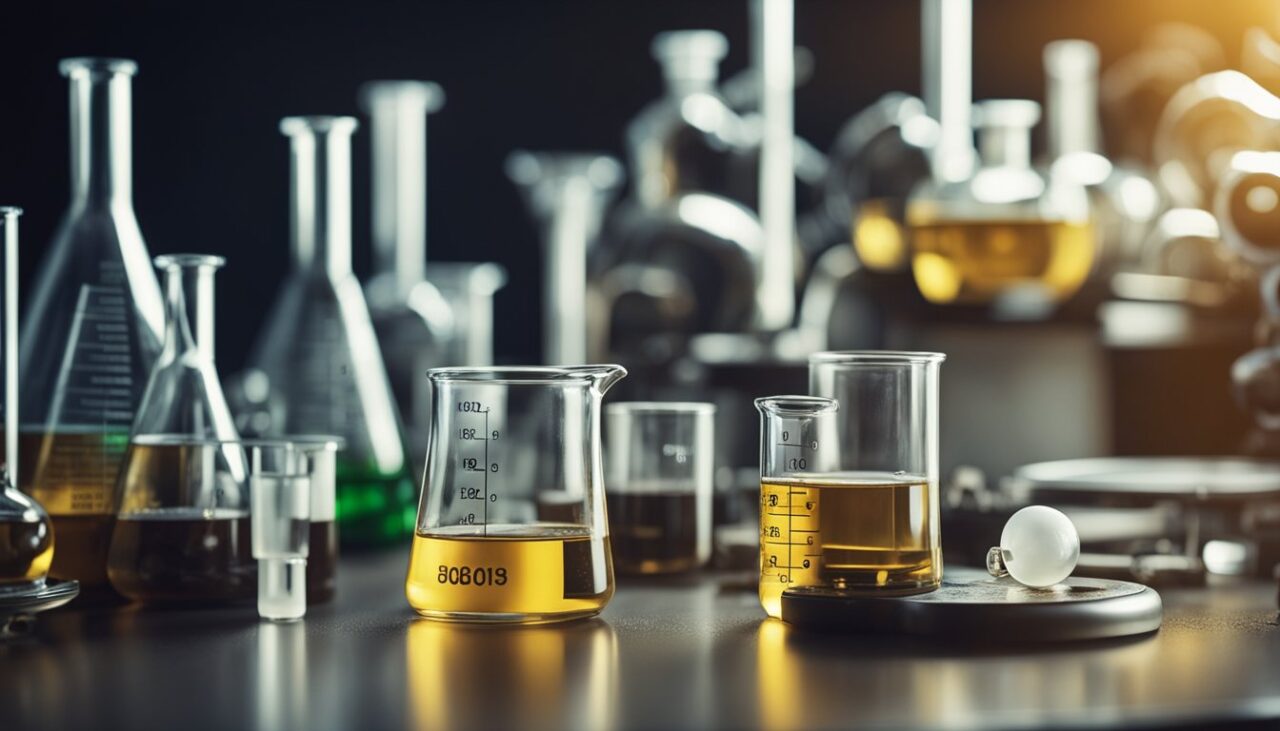
When exploring the effects of THCA, it's crucial to understand its impact on your mind and body. Unlike its famous counterpart THC, THCA is a non-intoxicating cannabinoid, which means you won't experience the typical 'high' associated with cannabis.
THCA stands for tetrahydrocannabinolic acid and is present in raw and live cannabis. As the non-psychoactive precursor to THC, THCA itself doesn't bind well to CB1 receptors in your brain, which are responsible for the psychoactive effects of cannabis. Without the intensive heating process known as decarboxylation, THCA won't convert to THC, and thus, won't produce intoxicating effects.
Regarding safety, THCA is known to be well-tolerated with a good safety profile. It lacks the intoxicating properties of THC, often resulting in fewer side effects, making it a subject of interest for therapeutic use. THCA has shown potential for a variety of applications, including anti-inflammatory effects, but like any compound, it is essential to consider possible side effects and consult healthcare providers for medical guidance.
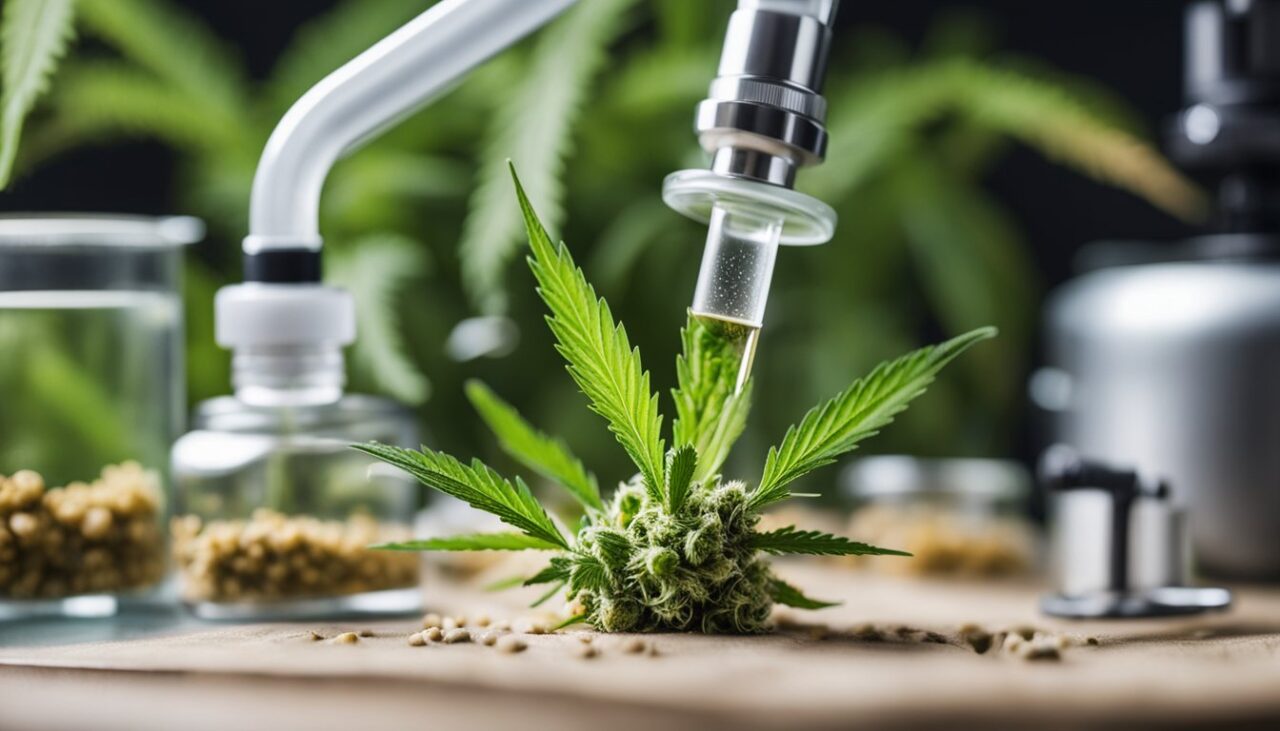
THCA, or tetrahydrocannabinolic acid A, is present in the raw cannabis plant and requires specific methods for extraction and consumption. You'll find that heating is a common theme in activating THCA's effects, while alternative methods enable consumption without psychoactive results.
When you smoke cannabis flower, the heat from combustion converts THCA into THC, the psychoactive compound that produces the “high” effect. Similarly, vaping involves heating the cannabis, but at a lower temperature than smoking, which can preserve more of the terpenes and cannabinoids for a different experience.
In edibles, THCA is typically decarboxylated—converted to THC through heating—before it's infused into food. This process allows THC to be activated, so when you consume the edible, you'll feel its psychoactive effects. Oils can be made with either THCA or THC, depending on whether they've been heated to cause decarboxylation. If you're looking for the potential therapeutic benefits without the high, THCA oils might be what you're interested in.
Tinctures are liquid extracts that allow for precise dosing. They can be made with either THCA or THC depending on the desired effect. You use them by placing a few drops under your tongue for quick absorption. Topicals are creams or balms infused with cannabis and are applied directly to the skin. While they often contain THC, there are also THCA-rich topicals which may help with inflammation and are non-psychoactive.
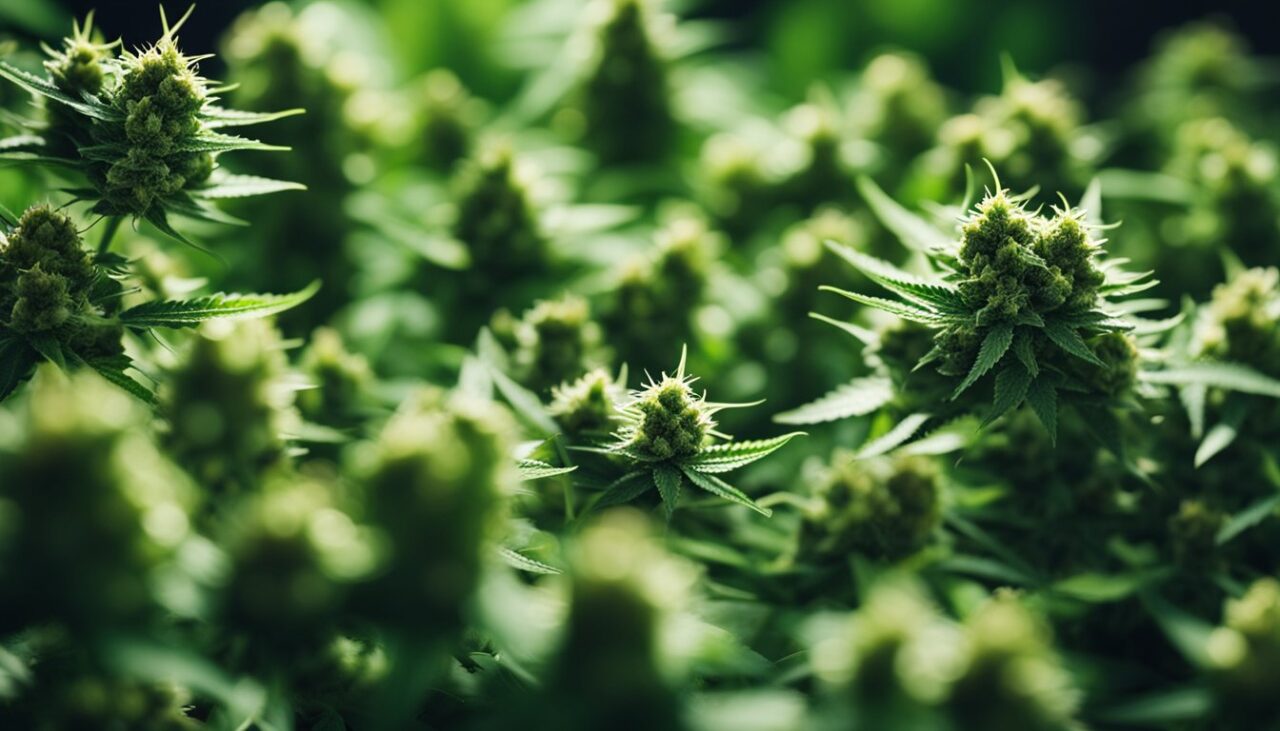
When you explore the complexities of cannabis, you'll encounter the fascinating concept of the entourage effect. This is a synergy where the various compounds in the plant, like cannabinoids and terpenes, work together to enhance the overall effects of cannabis.
Terpenes, the aromatic compounds in plants, play a crucial role in the entourage effect. They aren't just there for scent; they interact with cannabinoids like THCA to potentially alter and enhance their effects. For example, the terpene myrcene is thought to help cannabinoids more easily cross the blood-brain barrier, amplifying their impact. Then there's limonene, which might increase the feeling of stress relief which is often associated with cannabis use. When these terpenes and cannabinoids like THCA come together, they may create a more nuanced and effective experience than any single compound could on its own.
Your cannabis experience can vary widely depending on the plant's cannabinoids and terpenes profile. Imagine each strain of cannabis as a unique cocktail of these compounds, with the potential for a different outcome. The entourage effect suggests that a strain with a diverse array of compounds might offer a more balanced, therapeutic benefit compared to one that's high in just THC, for instance. This means that all the subtle nuances of the strain's chemical makeup could influence how you feel after using it.
Each person's reaction to the entourage effect can be as individual as the strains of cannabis themselves, owing to our unique body chemistries. Thus, knowing your desired outcome can guide you in selecting a cannabis strain that aligns with the particular cannabinoids and terpenes profile to achieve the entourage effect you're looking for.
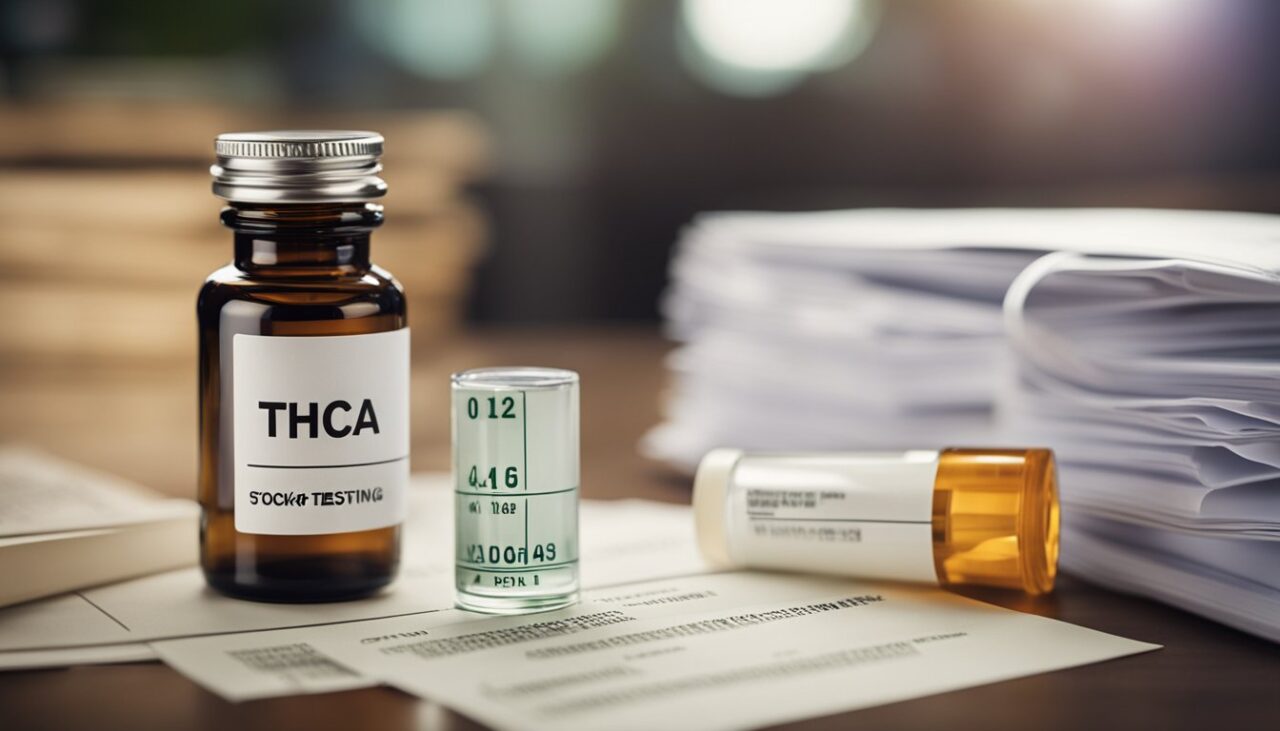
Before delving into specifics, it's important for you to understand the legal nuances of THCA and its relation to drug testing. The legality of substances derived from the cannabis plant can be complex and depends on various laws, such as the Farm Bill, as well as the substance's presence in drug tests.
The 2018 Farm Bill significantly altered the landscape for hemp and its derivatives by removing them from the definition of marijuana under the Controlled Substances Act. This means that industrial hemp and its byproducts, like THCA, which contain no more than 0.3% Delta-9-THC on a dry weight basis, are federally legal. However, since THCA can convert to THC, which is psychoactive, your state’s laws play a crucial role in determining its legality.
When it comes to drug tests, you might be concerned about whether THCA will cause a positive result. Standard drug tests typically look for THC, not THCA content. However, because THCA can convert into THC inside your body, there is a potential for a false positive if a large amount of THCA is consumed. Interpretation of workplace tests for cannabinoids suggests that despite changing state laws, many businesses maintain strict drug testing policies that could impact the employment of individuals using THCA-containing products.
Remember, the distinction between legality and workplace policies is key—you could legally use a product containing legal THCA under state law but still face consequences based on your workplace's drug testing rules.
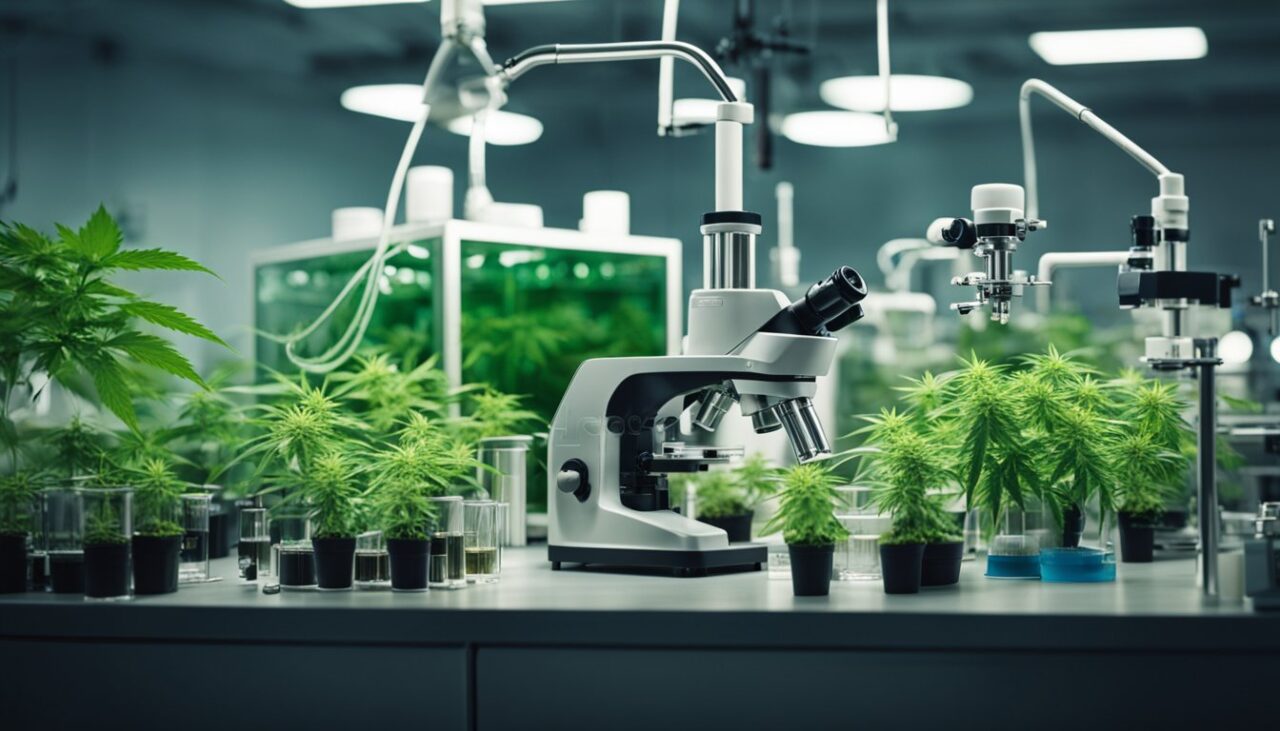
Recent years have seen a significant push to deepen our understanding of cannabis and its potential medical benefits. Your awareness of this ever-evolving field can help you appreciate the strides being made in the healthcare and pharmaceutical industries.
The concerted efforts in medical cannabis research have led to identifying the therapeutic potentials of cannabinoids like Tetrahydrocannabinolic acid (THCA). For instance, studies have explored how the acidic forms of THC and CBD, such as THCA, are synthesized from cannabigerolic acid (CBGA), offering insights into the plant's biochemistry. Research on cannabinoid biochemistry not only advances our basic science knowledge but also lays the groundwork for future medical applications.
Researchers have also been making progress in genetically engineering strains to increase the availability of specific cannabinoids for pharmaceutical use. These advancements may influence industry practices and could lead to more targeted treatments for patients.
Looking to the future, there's much anticipation about the directions cannabis research can take. One area that's particularly promising is metabolic engineering. For example, scientists are working on how to increase the production of non-psychoactive cannabinoids by inhibiting certain enzymes, like THCA synthase. This type of metabolic engineering in industrial hemp may revolutionize the way cannabis sativa is used in medicine, possibly leading to treatments that are more effective and have fewer side effects.
Furthermore, the increasing legalization of cannabis for research purposes is likely to open up even more avenues for exploration. The expansion of legal research can potentially accelerate the development of new therapies, optimize plant breeding for medical purposes, and improve patient outcomes.
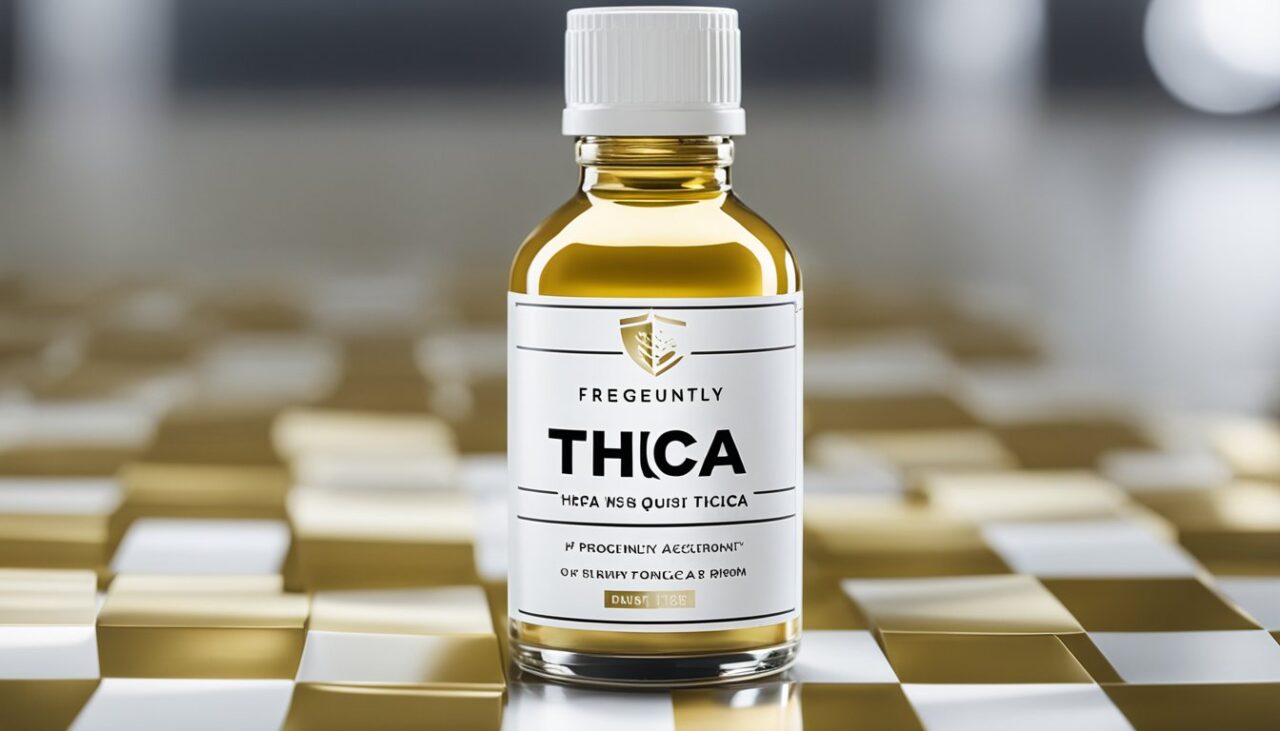
In this section, you'll find concise answers to common questions about THCA, its interactions with the body and brain, and how it compares to other cannabinoids.
THCA, or Tetrahydrocannabinolic acid, is a non-psychoactive precursor to THC found in raw and live cannabis. As a non-intoxicating compound, THCA may have anti-inflammatory and neuroprotective properties.
Unlike THC, THCA does not produce psychoactive effects and therefore does not have the same impact on the brain. However, THCA may influence the endocannabinoid system, which plays a role in various physiological processes.
THCA and CBD are both cannabinoids present in cannabis, but they differ chemically and in their effects. THCA is the acidic form of THC, while CBD is known for its potential therapeutic benefits without causing intoxication.
Delta-9-THC is the primary psychoactive component of cannabis, while Delta-8-THC is a less potent analog. THCA is the non-active acidic precursor to Delta-9-THC and does not elicit a high.
Since most drug tests screen for THC rather than THCA, pure THCA may not produce a positive drug test. However, if THCA is decarboxylated into THC, it could potentially lead to a positive result.
The potency of THCA can influence its potential therapeutic benefits. Higher concentrations might enhance its effectiveness in alleviating symptoms like inflammation but without the psychoactive effects of THC.